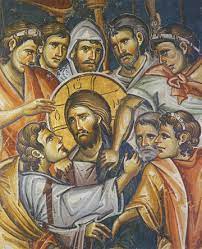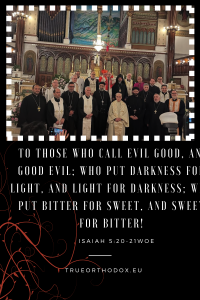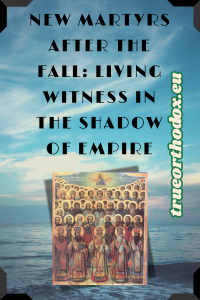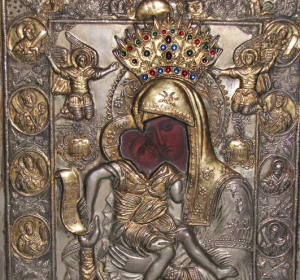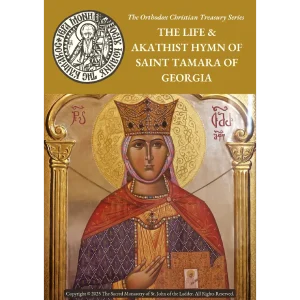Do Schismatics (or Even More So Those for Years in Communion with Heretics) have the Grace of the Holy Spirit?
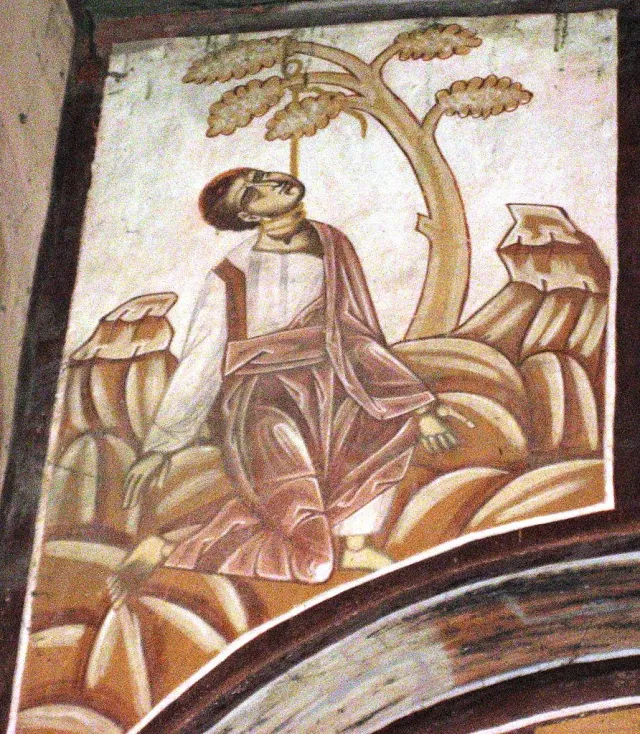
“Such a schism, ( a long-lasting one)” says Saint Basil, is “already in all things like unto heresy, and one must treat such schismatics as one would heretics, not permitting any communion with them.”
St. John Chrysostom says, “Thou sayest, “We are all the same—they serve, pray, and teach the same as we do.” Very well—why then are they not with us? One Lord, one Faith, one Baptism! They have broken away—in that case, one of two things must be so: either all is well with us and they are in poor straits, or else all is well with them, and we are in trouble!
Speaking about the above-mentioned quote, St. Philaret of New York tells us, “What do these clear and categorical words of this holy father signify? They indicate nothing other than that schism is graceless. Christ was not divided, and His grace is one. If one is to believe in the “state of grace” of schism, then one must either admit that we do not have grace—those who broke away having taken it with them; or else admit that there are two graces (and obviously two true Churches, for grace is given only in the true Church).The Hieromartyr Ignatius the God-Bearer in an epistle to the Philadelphians writes: “Do not err, my brethren. If any man follows him that makes a schism in the Church, he shall not inherit the Kingdom of God.” Saint John Chrysostom finally draws his conclusion—inevitable and incontrovertible: “I do say and affirm that schism is just as terrible and evil as heresy.”
Blessed Augustine is sure that the schismatics are not in the Сhurch: “We believe in the Holy Church. For both heretics and schismatics style their congregations “churches”. But heretics, in holding false opinions regarding God, do injury to the faith itself; while schismatics, on the other hand, in wicked separations break off from brotherly charity, although they may believe just what we believe. Wherefore neither do the heretics belong to the Church catholic, which loves God; nor do the schismatics form a part of the same.” (“On Faith and the Creed”)
Again St. Philaret of New York is in favor of calling things as they are saying, “For it is precisely because of this because it was not stated at once and clearly where the truth is and where falsehood (for two truths there cannot be), where is white and where is black, where light and where darkness, which path is correct and which incorrect—there would not now exist this “inter-jurisdictional hodgepodge” and the reality would be clear….And we have already seen that the holy fathers equate obstinate and prolonged schism with heresy.”
St. Philaret in his epistle to Abbess Magdalene says, “You, Matushka, have no doubt caught the basic trend of my thoughts. I consider (I speak, of course, only for myself) that the American and Parisian schismatics do not have grace, for otherwise one would have to admit the absurd: the existence of several true Churches, which do not recognize each other, nor have any spiritual communion among themselves. This is already manifestly absurd because the divine Founder of the Church said: “I will build My Church,” and not “My Churches.” I was led to this conviction both by the words of the ancient holy fathers (cited by me above) and by the words of Abba Anthony concerning the “apparent” performance of the mysteries among those who have broken away from the true Church. To such a degree do I not believe in the grace of the schismatics’ “manipulations” that in the event that I was dying and it was necessary to give me Communion, I would receive it neither from the Parisians nor from the American False-Autocephalites, lest in place of the holy Mysteries I should swallow a piece of bread and some wine.”
St. Cyprian of Carthage says,
Whoever is separated from the Church and is joined to an adulteress [a schismatic church] is separated from the promises of the Church, nor will he that forsakes the Church of Christ attain to the rewards of Christ. He is an alien, a worldling, and an enemy. He cannot have God for his Father who has not the Church for his mother” (The Unity of the Universal Church 6, 1st ed. [A.D. 251]).
St. Cyprian of Carthage teaches us: “If they don’t preserve unity and communion with the Church, no reformation of so great importance can be effected by them, as will compensate for the mischief arising from their schism. Even if people like this become martyrs for the name of Christ, their stain is not washed away. The unforgivable grievous sin of discord is not purged by suffering. You cannot be a martyr outside the Church. You cannot enter the kingdom when you shun those that will reign there.”
St. Jerome tells us, “Nevertheless, there is no schism which does not trump up a heresy to justify its departure from the Church” (Commentary on Titus 3:10–11 [A.D. 386]).
